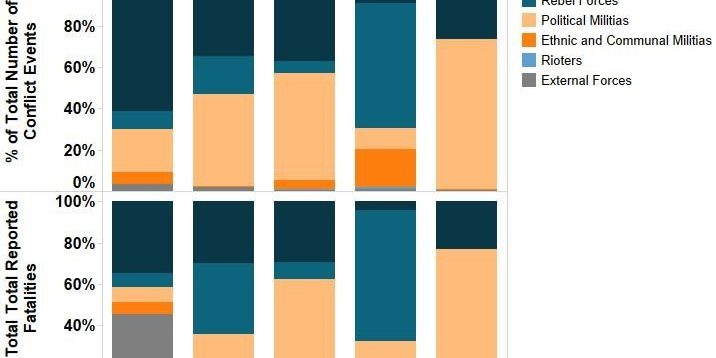The three day US Africa Leaders Summit, which ended last week, has faced criticism for leaving the issue of human rights largely off the agenda (McGreal, 13 August 2014; Friedman, 7 August 2014). Obama himself acknowledged that some keys allies in Africa “are not performing optimally when it comes to all the various categories of human rights,” but advocated a policy of engagement and criticism rather than disengagement and sanction (BBC News, 7 August 2014).
Key US allies such as Uganda, Rwanda and Ethiopia have all been accused of human rights abuses and curtailment of civil liberties. Among the most high-profile targets is Museveni for his extreme stance against homosexuality and the persecution of homosexual and transgendered citizens within Uganda (Human Rights Watch, 7 August 2014). Rwanda’s Kagame has been accused of suppressing political dissent in Rwanda (Amnesty International, 16 August 2013) and backing insurgents in Eastern Democratic Republic of the Congo (UN Security Council, 15 November 2012). Ethiopia, a key ally in the United State’s operation against Al-Shabaab in the Horn of Africa, has also reportedly engaged in the suppression of separatist opinions and instances of state violence against protesters (Human Rights Watch, 5 May 2014).
However, how do these favoured regimes compare to Africa’s ‘pariah states’ in terms of violence against of their own citizens? Figure 1 shows the proportion of violence against civilians perpetrated by different conflict actor types in Ethiopia, Rwanda, Uganda, Sudan and Zimbabwe. The first three countries have been key US allies since the 1990s, when their current rulers were hailed by Clinton as ‘the new generation of African leaders’, and form a key role in Obama’s plan to build a ‘rapid response force’ to ensure security in Africa (BBC News, 7 August 2014). Meanwhile, Sudan and Zimbabwe are both ‘pariah states’ and often subject to international criticism based on their human rights record and use of force as a means of control. The leaders of both Sudan and Zimbabwe were barred from attending the summit (Friedman, 7 August 2014).
For the period 1997 to 9 August 2014 Uganda’s state forces are responsible for less than 10% of events involving violence against civilians, Rwanda’s are responsible 34.5% and Ethiopia is responsible for over 60%, surpassing both Sudan and Zimbabwe.
While the governments of Sudan and Zimbabwe (37% and 26% respectively) seem responsible for proportionately fewer violent incidents against civilians than Ethiopia , violent pro-government political militias are the dominant perpetrators of violence against civilians in both countries. In Sudan, militias supported by the government, such as the Janjaweed or Rapid Support Forces, are responsible for close to 40% of all deaths arising from violence against civilians. In Zimbabwe, pro-Mugabe militias are responsible for over 50% of incidences of violence against civilians and over 50% of the resulting fatalities.
Figure 2 also shows that the aggregate instances of violence against civilians attributed to state forces is much higher in pariah states. However, the state forces of key US ally Ethiopia have been responsible for over 1000 civilian fatalities while Rwanda has been responsible for 939. In comparison few have died in Mugabe’s campaign of repression.
The evidence supports the criticism aimed at Obama regarding key US allies in Africa, with Ethiopia in particular having a poor record of violence against civilians. However, US-backed states do seem to differ from pariah states in terms of the level of state violence against civilians. The US-backed states also appear less likely to use violent unaccountable militias to subjugate their own citizens.
References
Amnesty International, 2013. ‘Rwanda: Official interference in affairs of human rights NGO places independent human rights work in peril,’ http://www.amnesty.org/en/library/asset/AFR47/002/2013/en/e00e69e4-4203-4b5b-9b34-90332da87d29/afr470022013en.pdf [Accessed 13 August 2014].
BBC News., 2014. Barack Obama hails ‘new Africa emerging’. BBC News, 7 August 2014 http://www.bbc.co.uk/news/world-us-canada-28678769 [Accessed 13 August 2014].
Friedman, D., 2014. U.S.-Africa summit did not address human rights violations committed by some of the continent’s leaders: advocates. NY Daily News, 7 August 2014 http://www.nydailynews.com/news/politics/u-s-africa-summit-addressed-violations-committed-leaders-advocates-article-1.1894843 [Accessed 13 August 2014].
Human Rights Watch, 2014a. Is it Now Legal to Be Gay in Uganda? Human Rights Watch, 7 August 2014 http://www.hrw.org/news/2014/08/07/it-now-legal-be-gay-uganda [Accessed 13 August 2014].
Human Rights Watch, 2014b. Ethiopia: Brutal Crackdown on Protests, Human Rights Watch, 5 May 2014 http://www.hrw.org/news/2014/05/05/ethiopia-brutal-crackdown-protests [Accessed 13 August 2014].
McGreal, C., 2014. Africa leader’s summit: why human rights are off Obama’s agenda. The Guardian, 5 August 2014 http://www.theguardian.com/world/2014/aug/05/africa-leaders-summit-why-human-rights-are-off-obamas-agenda [Accessed 13 August 2014].
UN Security Council, 2012. ‘Letter dated 12 November 2012 from the Chair of the Security Council Committee established pursuant 1533 (2004) concerning the Democratic Republic of the Congo addressed to the President of the Security Council,’ http://www.securitycouncilreport.org/atf/cf/%7B65BFCF9B-6D27-4E9C-8CD3-CF6E4FF96FF9%7D/s_2012_843.pdf [Accessed 13 August 2014].
AfricaAl ShabaabCivilians At RiskCurrent HotspotsEthnic MilitiasFocus On MilitiasHuman RightsMuseveni RegimePro-Government MilitiasRioting And ProtestsViolence Against Civilians







